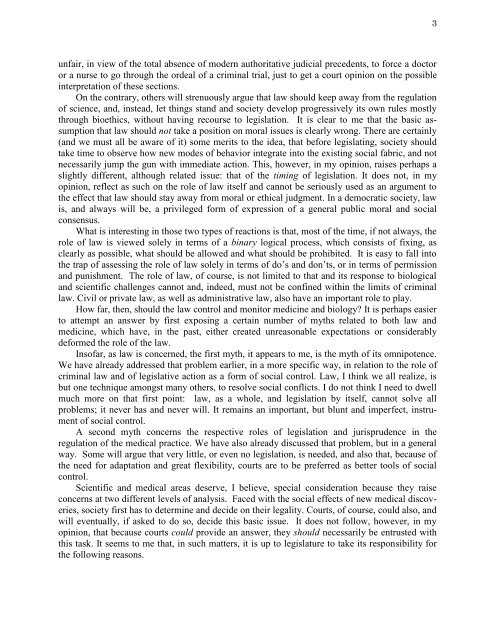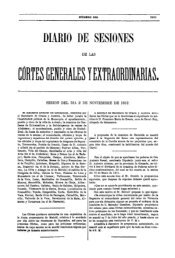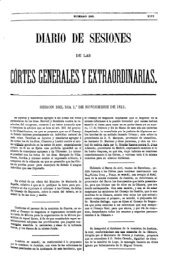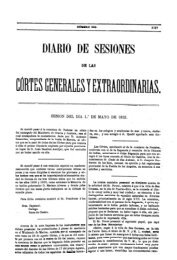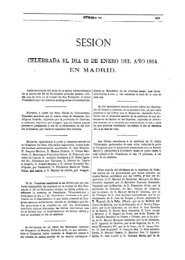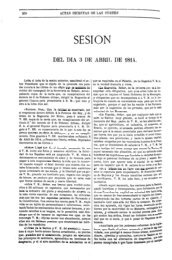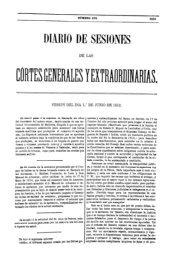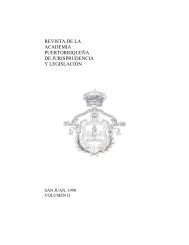whom the child is surren<strong>de</strong>red after birth, who has paid for the whole operation and who willraise the child as her own).Another area which offers a new challenge and, without any doubt, needs a serious legal an<strong>de</strong>thical analysis is that of genetics. Our society will have, at one point or another, to face againtwo different categories of problems. General social and ethical ones, such as those touchingupon the legality of inter-species breeding and of genetic engineering applied to the humanperson. A burning issue will probably be how far, as a society, are we prepared to go withoutendorsing eugenic policies with all the pitfalls that they represent in terms of the biologicalevolution of the human race, potential discrimination, and the symbolic danger of thematerialization of the eternal dream of the {perfect human person}. Other will be of a morepractical nature. The law, for instance, already has to evaluate the admissibility in evi<strong>de</strong>nce, forboth civil and criminal trials, of genetic imprints and DNA expertise.My first point is, I think, ma<strong>de</strong>: The challenges rose by mo<strong>de</strong>rn medicine and biology, forsociety in our present social and economic context, are crucial, extraordinary and very complex.Faced with these challenges, people, and mostly the informed public, often ask: what doesthe law do? and often blame the legislator for its silence and failure to act. The public <strong>de</strong>mandfor legal action takes two different forms. The first and the more common one is usually arequest for some form of criminal law intervention. Part of the public wrongly believes that themain and most important role of the law, if not really the only one, is to prohibit and punish. Thecontrol of medicine and science is, thus, clearly seen in a punitive perspective and supported bycriminal law. The second form is a clear <strong>de</strong>mand for legislative, rather than court action:legislation or regulation, rather than case law. The public sometimes wrongly assumes that agiven piece of legislation will, by magic, make the problems it addresses disappear. We, lawyersand social science people, know that this assumption is both unrealistic and dangerous.Unrealistic, on the one hand, because, to be efficient in terms of social control, legislation mustbe carefully prepared and timed, and not imposed without public discussion to the social groupas a whole. Hastily-drafted legislation, passed because of a particular crisis situation or sud<strong>de</strong>nlegislation, passed because of a particular crisis situation or sud<strong>de</strong>n political pressures, usuallymake bad law. It is dangerous, on the other hand, because legislation in itself cannot solve problemsthat are of a social nature without a number of preliminary conditions. Legislation that isineffective or ineffectual brings law and the legal system, as a whole, into disrepute, because itcarries with it the image of inefficiency and a built-in risk of civil disobedience.Lawyers and jurists themselves are, however, far from unanimous in their answers to theproblem of what law should do when confronted with scientific and medical challenges. Thislack of consensus is un<strong>de</strong>rstandable because answers vary greatly. Some will, of course, arguethat most, if not all of the fundamental responses, even to the new problems, are already in thelaw. It is perfectly legitimate, for instance, to argue that most of the problems related to thelegality of active and passive euthanasia have always been addressed by a number of specificsections of the present Criminal Co<strong>de</strong>s concerning homici<strong>de</strong>, the duty to treat, and the duty not tointerrupt a procedure that could lead to <strong>de</strong>ath or serious bodily harm. This answer is,superficially and formally, perfectly true in strict, analytical terms. However, it will not reallysatisfy either the public or the health care professionals. Physicians and nurses will, of course, bethe first to point out that these various acts of legislations were drafted at a time when mo<strong>de</strong>rntechnologies did not exist and that they are at best ambiguous, if not completely obsolete; and,consequently, that the very minimal duty of the legislator today should be to update them and rephrasethem in a form and a language adapted to mo<strong>de</strong>rn realities. They will also argue that it is2
unfair, in view of the total absence of mo<strong>de</strong>rn authoritative judicial prece<strong>de</strong>nts, to force a doctoror a nurse to go through the or<strong>de</strong>al of a criminal trial, just to get a court opinion on the possibleinterpretation of these sections.On the contrary, others will strenuously argue that law should keep away from the regulationof science, and, instead, let things stand and society <strong>de</strong>velop progressively its own rules mostlythrough bioethics, without having recourse to legislation. It is clear to me that the basic assumptionthat law should not take a position on moral issues is clearly wrong. There are certainly(and we must all be aware of it) some merits to the i<strong>de</strong>a, that before legislating, society shouldtake time to observe how new mo<strong>de</strong>s of behavior integrate into the existing social fabric, and notnecessarily jump the gun with immediate action. This, however, in my opinion, raises perhaps aslightly different, although related issue: that of the timing of legislation. It does not, in myopinion, reflect as such on the role of law itself and cannot be seriously used as an argument tothe effect that law should stay away from moral or ethical judgment. In a <strong>de</strong>mocratic society, lawis, and always will be, a privileged form of expression of a general public moral and socialconsensus.What is interesting in those two types of reactions is that, most of the time, if not always, therole of law is viewed solely in terms of a binary logical process, which consists of fixing, asclearly as possible, what should be allowed and what should be prohibited. It is easy to fall intothe trap of assessing the role of law solely in terms of do’s and don’ts, or in terms of permissionand punishment. The role of law, of course, is not limited to that and its response to biologicaland scientific challenges cannot and, in<strong>de</strong>ed, must not be confined within the limits of criminallaw. Civil or private law, as well as administrative law, also have an important role to play.How far, then, should the law control and monitor medicine and biology? It is perhaps easierto attempt an answer by first exposing a certain number of myths related to both law andmedicine, which have, in the past, either created unreasonable expectations or consi<strong>de</strong>rably<strong>de</strong>formed the role of the law.Insofar, as law is concerned, the first myth, it appears to me, is the myth of its omnipotence.We have already addressed that problem earlier, in a more specific way, in relation to the role ofcriminal law and of legislative action as a form of social control. Law, I think we all realize, isbut one technique amongst many others, to resolve social conflicts. I do not think I need to dwellmuch more on that first point: law, as a whole, and legislation by itself, cannot solve allproblems; it never has and never will. It remains an important, but blunt and imperfect, instrumentof social control.A second myth concerns the respective roles of legislation and jurispru<strong>de</strong>nce in theregulation of the medical practice. We have also already discussed that problem, but in a generalway. Some will argue that very little, or even no legislation, is nee<strong>de</strong>d, and also that, because ofthe need for adaptation and great flexibility, courts are to be preferred as better tools of socialcontrol.Scientific and medical areas <strong>de</strong>serve, I believe, special consi<strong>de</strong>ration because they raiseconcerns at two different levels of analysis. Faced with the social effects of new medical discoveries,society first has to <strong>de</strong>termine and <strong>de</strong>ci<strong>de</strong> on their legality. Courts, of course, could also, andwill eventually, if asked to do so, <strong>de</strong>ci<strong>de</strong> this basic issue. It does not follow, however, in myopinion, that because courts could provi<strong>de</strong> an answer, they should necessarily be entrusted withthis task. It seems to me that, in such matters, it is up to legislature to take its responsibility forthe following reasons.3
- Page 1 and 2: REVISTA DE LA ACADEMIA PUERTORRIQUE
- Page 3: 2enardecerá, en vez de corregir, l
- Page 9 and 10: través de la Ley, enardecerá, en
- Page 11: MEDICINE AND BIOLOGY: HOW FAR CAN T
- Page 16 and 17: CONTESTACIÓN AL DISCURSO DEL HON.
- Page 18 and 19: la Oficina de Política sobre Cienc
- Page 20 and 21: códigos de ética existentes y los
- Page 22 and 23: REFORMING THE FEDERAL SENTENCING GU
- Page 24 and 25: narcotics and firearms, they tend t
- Page 26 and 27: Our faith in technology and plannin
- Page 28 and 29: single, all-powerful judge”. 17 W
- Page 30 and 31: CONTESTACIÓN AL DISCURSO DEL HON.
- Page 32 and 33: 3trafficking and gun-related offens
- Page 34 and 35: 5conduct which experience has shown
- Page 36 and 37: 2En este escrito trataré de establ
- Page 38 and 39: 4atender sus obligaciones económic
- Page 40 and 41: 6B. Juicio Público: Al igual que e
- Page 42 and 43: 8explicar la doctrina vigente. 47 A
- Page 44 and 45: 10tan serio disturbio emocional (
- Page 46 and 47: 12En Soto Ramos v. Superintendente
- Page 48 and 49: 14profesional y cómo ésta podría
- Page 50 and 51: 16Las implicaciones de esta exigenc
- Page 52 and 53: 18jurado. 116 Por otro lado, nuestr
- Page 54 and 55: 20forma rigurosa, de que la renunci
- Page 56 and 57: 22Tribunal Supremo ha seguido celos
- Page 58 and 59: 24protección es mayor que la que e
- Page 60 and 61: 264. Absuelto un acusado por determ
- Page 62 and 63:
28En Puerto Rico sólo cabe regular
- Page 64 and 65:
30B. Aplicación ex post facto de l
- Page 66 and 67:
32relación con el alcance 224 de l
- Page 68 and 69:
34se trata de una norma que comenz
- Page 70 and 71:
364) que la corroboración se relac
- Page 72 and 73:
38arresto. Bajo la Enmienda Cuarta,
- Page 74 and 75:
40razonable a la intimidad, no hay
- Page 76 and 77:
42Nuestra legislación permite la d
- Page 78 and 79:
44Derechos se dispone expresamente
- Page 80 and 81:
46Estados Unidos, adopta una posici
- Page 82 and 83:
2Aclarados esos puntos, coincido co
- Page 84 and 85:
La verdad es que los principios con
- Page 86 and 87:
EL DOLOR Y LA ANGUSTIA MENTALRamón
- Page 88 and 89:
3.7 8 9 10conocida y aceptada, hast
- Page 90 and 91:
5estímulo. Sin embargo, el punto e
- Page 92 and 93:
7de reconocimiento mundial, como ex
- Page 94 and 95:
dice que éste no distingue entre e
- Page 96 and 97:
11dos meses y medio más tarde cuan
- Page 98 and 99:
implicaciones negativas. Se debe de
- Page 100 and 101:
2naturaleza de los seres vivos, apl
- Page 102 and 103:
4de la clase dominante en la socied
- Page 104 and 105:
6su hora admitió ser identificado
- Page 106 and 107:
8cumpla la prestación que la norma
- Page 108 and 109:
10Encontramos la expresión todaví
- Page 110 and 111:
12La satisfacción de necesidades h
- Page 112 and 113:
14como aquí se propone, puede hace
- Page 114 and 115:
LOS DERECHOS HUMANOS FRENTE AL ESTA
- Page 116 and 117:
Como resultado, se ha llegado a un
- Page 118 and 119:
Yugoslavia, Georgia, Azerbaiján, A
- Page 120 and 121:
METASTESIS DE LA «RAZÓN» Y EL «
- Page 122 and 123:
fue quizás el producto de esa mism
- Page 124 and 125:
embargo, la corroboración de la ne
- Page 126 and 127:
VICuando Hegel, en su Phänomenolog
- Page 128 and 129:
del entendimiento (Verstehen) en el
- Page 130 and 131:
por el poder, por las estructuras y
- Page 132 and 133:
lo único que indica esta trasgresi
- Page 134 and 135:
Legislativa enmendó la Ley 53 orig
- Page 136 and 137:
Incluso, únicamente ofreció su t
- Page 138 and 139:
Al llegar a la gobernación en 1965
- Page 140 and 141:
Presidente del Tribunal Supremo y a
- Page 142 and 143:
Lamentablemente, vivimos en una soc
- Page 144 and 145:
1. El que en todas las acciones rel
- Page 146 and 147:
coordinación interagencial, con pa


